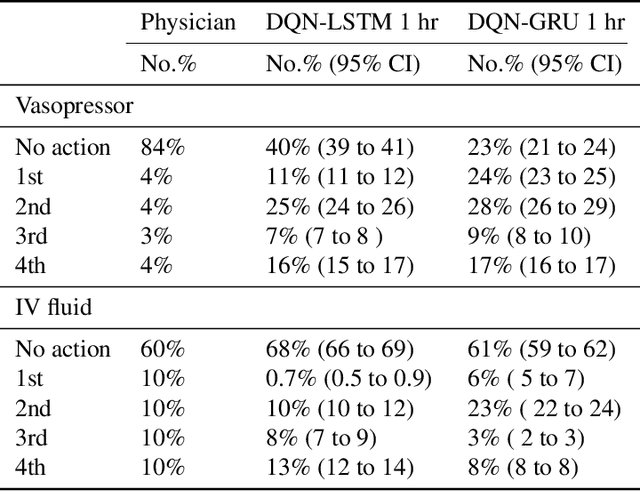Zachary Shahn
Is Deep Reinforcement Learning Ready for Practical Applications in Healthcare? A Sensitivity Analysis of Duel-DDQN for Sepsis Treatment
May 08, 2020



Abstract:The potential of Reinforcement Learning (RL) has been demonstrated through successful applications to games such as Go and Atari. However, while it is straightforward to evaluate the performance of an RL algorithm in a game setting by simply using it to play the game, evaluation is a major challenge in clinical settings where it could be unsafe to follow RL policies in practice. Thus, understanding sensitivity of RL policies to the host of decisions made during implementation is an important step toward building the type of trust in RL required for eventual clinical uptake. In this work, we perform a sensitivity analysis on a state-of-the-art RL algorithm (Dueling Double Deep Q-Networks)applied to hemodynamic stabilization treatment strategies for septic patients in the ICU. We consider sensitivity of learned policies to input features, time discretization, reward function, and random seeds. We find that varying these settings can significantly impact learned policies, which suggests a need for caution when interpreting RL agent output.
 Add to Chrome
Add to Chrome Add to Firefox
Add to Firefox Add to Edge
Add to Edge